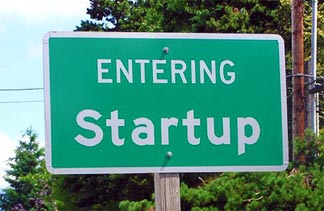I heart mid-stage startup life. Its dirty, gritty, hard decision making where you really learn your business inside out. You can turn yourself into a successful business or you can drive your business into a classic brain-eating, zombie company living out its life sucking on SRED claims.
Its a constant mix of battling short vs long, trying to fundamentally answer two questions:
1. Is my initial business model/strategy succeeding?
2. Is there a better business model/strategy out there?
Or… to pivot or not to pivot. The non-chalance which pivot is thrown out by the startup blog-orati gets me a bit annoyed. Its really damn hard to tell if you are succeeding or failing at any given point in time for most mid-stage companies. Unless you are part of the super successful 1% or the super sucky 1%. But for the rest of the world, you probably have sales & customers – but maybe not enough, or maybe not profitable customers. Its actually quite challenging to stare at your data, disassociate yourself emotionally and come up with a clear rational answer on if your problem is execution (experiment & learn) or strategic (pivot)… and if its strategic, where do you go next?
So I thought I’d shed some internal light as to how I’ve seen this process managed. Lets pretend you have a product, and you’ve done a few releases and made it better. You have some customers who pay for it. You’re not yet break-even nor have you landed financing to let you pursue this indefinitely. I.e. you are the normal typical startup 1-4 years into life.
Dave McClure’s seminal startup metrics slide deck is a great start for figuring out which data & metrics you need as a company to judge oneself. In the early days of Peek we coalesced around these metrics:
-cost of acquisition.. how much do you spend to get a sub
-customer satisfaction… Net Promoter Score is one of my favourites here (one question survey – would you recommend us to somebody else, lots of bechmarks to compare to)
-churn… deep dive stats on reasons why people churn
-segment data… cut this up by demographic, sociographic, psychographic (what needs were filled when they bought it), etc
Then the basic approach was this. Take your segments and look for over/under-indexers in each of the above. Look for patterns:
-does a certain segment churn faster? i.e. are some segments better quality customers. Does this align to a channel?
-do you out index the standard demographics in a certain category? For instance do you have 2x more mom’s than you should based on normal demographic distribution. Are those mom’s also better users? or do they churn fast? The over-indexing may look small at first, a proverbial green shoot. Water and fertilize it! We over-indexed in some weird segments – like cost-conscious small business owners.
-are some segments happier than others, do they have better usage patterns and higher customer satisfaction…
-compare this with channel, you can gain big clues here. For instance lets say you have partnerships with Yahoo & AOL and have ads on both their sites. If Yahoo is outperforming AOL, try to understand the demographic, psychographic reason for it. Cross compare to churn in these cohorts. Maybe Yahoo is more small business oriented who have a need for your product while AOL is an older, consumer base who do not.
-also cross compare this to product versions, do things get better as new product changes are introduced? We always noted that faster performing UI led to happier customers (and so has basically every study out there – see the seminal Microsoft/Google search research on how shaving even 50ms is a big differentiator).
Use this data to keep aligning product/market/channel fit. At some point (I’d argue you need to follow a process like this for 12 months +), you’ll have either exhausted a lot of opportunities and improved, or you’ll have not. I personally like really leaning on cost of acquisition as the telltale signals that strategy is wrong and you’re not going anywhere. At some point you’ll get product/market fit and word of mouth, virality and referals start to happen and you don’t need to spend as much time, energy, and/or money on marketing to a specific segment. If this doesn’t happen, if the only way for you to move your product is to always be juicing marketing in a way that is not affordable, then you probably need a new product/business model.
And at that point, after working tactics for a good period of time and tracking how it impacts metrics, then I’d “pivot”.
One last note, this is far more art than science. Picking metrics, finding tactics to improve them, reading trends, and moving on them – this is where the team (esp the CEO & marketing folks) earns its money as relentless executioners of the day to day business.
One last, last note, pivoting is really expensive & hard. Depending on how big your pivot is, you probably have to lay off staff (e.g. if you have expert consumer marketing staff and you are pivoting to enterprise… wooops), get board members and advisory board members who understand this space, re-brand yourself to the market, go get introduced to a whole new set of strategic potential partners, discover the industrial eco-system around your new pivot, maybe find new investors who invest in the space, and so on and so forth. And thats why you need to fight like mad to make your current strategy work.
 I know that
I know that 





 A lot of people talked shit about the recent valuation of Kik. It all seemed a bit insane and I admit the numbers I heard seemed wild. That was until
A lot of people talked shit about the recent valuation of Kik. It all seemed a bit insane and I admit the numbers I heard seemed wild. That was until 
